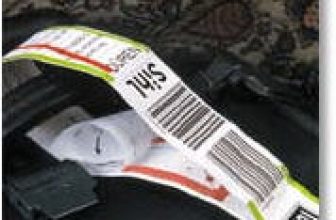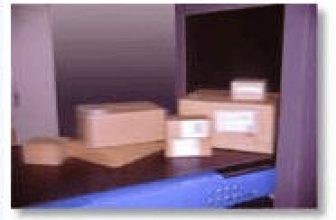
UAE Airport launches RFID-based baggage tracking project
[ad_1]
Dubai Airport in the United Arab Emirates has started a six-month technical trial to test the use of RFID technology to enhance the ability to track checked luggage. Different from the commonly used barcode identification tags, UHF EPC Gen 2 inlays are attached to each checked baggage on five flights between Hong Kong and London every day. There will also be one flight to and from Hong Kong every day. This technology is applied to the Afghan Airways.
Dubai Airport hopes that RFID combined with an automatic baggage sorting device can increase the number of luggage that can be accurately identified and sorted, thereby reducing the number of luggage that fails to arrive at the destination on time. Dubai Airport also uses a security database to ensure that airport staff are well aware of the whereabouts of baggage from the collection entrance to the loading of the aircraft. Dubai Airport has invested more than US$500,000 in this six-month project and expects to affix RFID tags to 500,000 luggage.
In order to track the luggage from the departure point to the arrival point, when the luggage passes through a series of reading points in the airport, the RFID reader reads the ID of the tag inlay in the unique luggage. The traditional bar code scanner method of identifying labels requires a clear light path between the scanner and the bar code. The difference in the orientation of the bar code labels of different luggage relative to the scanner may cause reading failures. According to Pankaj Shukla, Director of Motorola’s RFID business department, the reading rate of baggage barcode labels is about 85%, while past experiments on RFID applications in baggage handling have shown that the successful reading rate of tags is in the range of 90% to 99%. Inside. Non-automatically identified baggage that does not rely on barcodes or RFID tags requires manual handling and transfer, which increases the probability that baggage is delayed and cannot be carried on the same flight as the passenger. According to the statistics of the International Air Transport Association (IATA), a trade organization composed of global airlines, the loss of this industry due to failure to handle baggage amounts to 3 billion U.S. dollars per year.
If Emirates’ trials prove that using RFID to track luggage is more reliable than using barcodes and create more efficient and accurate luggage handling, BAA, the owner of London Heathrow Airport, said that its airport will also join the ranks of RFID-enabled airports. Make the airport “greatly improve the efficiency of Heathrow’s baggage handling system” and provide better services to passengers and airlines.
Motorola or its mobile business unit symbol has participated in many RFID technology trial projects, involving baggage handling systems at airports in Las Vegas, Hong Kong, and South Korea. The UAE project is their first cooperation with other RFID hardware and software providers. Motorola provides readers and Fujitsu provides RFID printers. The communication between all RFID readers and passive RFID tags is based on the EPC Gen 2 UHF air interface standard. In order to expand the field of use, the UAE is also considering the application of more hardware products from different manufacturers.
[ad_2]





